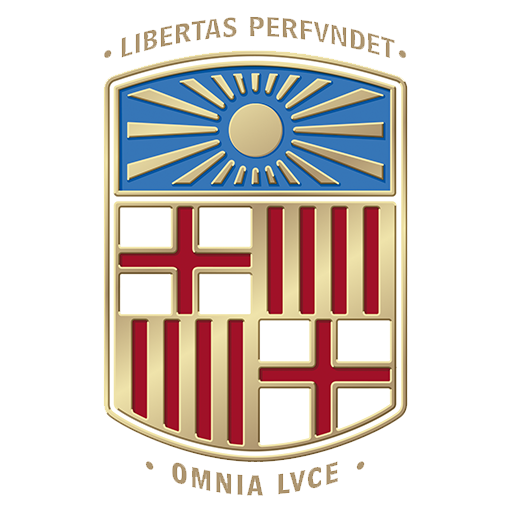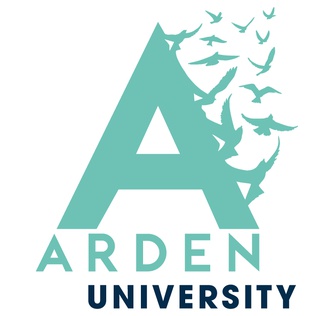📖Program Curriculum
On this MSc you will study the social emotional and cognitive development of children from infancy to adolescence as well as the experimental and scientific techniques used to address these question. You will develop the expertise and skills to appropriately assess and create experiments to better understand development and childhood.
You will be introduced to the different considerations and practicalities required when working with children in a range of educational health and wellbeing and social settings some of whom will be unable to provide informed consent and may be limited in their ability to communicate. For example building rapport to put children at ease or being sensitive to their needs in experimental context by using novel methodologies such as use of puppets or measuring attention via eye movements. You will also develop valuable transferable skills in analysis and data processing creative thinking decision making and communicating with different groups.
The MSc Applied Child Psychology can be studied as either a one-year full-time or two-year part-time course with a September start date. It also possible to study more flexibly part-time on a modular basis accumulating degree credits by taking individual modules over a period of maximum of five years.
You will complete 180 credits to obtain the master’s qualification comprising eight modules. For full-time students six core and two optional modules are spread over two semesters (120 credits in total) while the Dissertation is worked on throughout the duration of the course (60 credits). You will agree the topic for your Dissertation with your supervisor during Semester 1. You can choose optional modules from within Psychology or other relevant Schools across the University. For example the Faculty of Humanities and Social Sciences offers modules relating to issues in inclusive education and in global education and to the dynamic relationship between education and work. Part-time students take 90 credits for two years with the dissertation taken in the second year.
Other courses you might be interested in:
MSc Applied Social and Political Psychology
MSc Cognition and Cognitive Neuroscience
MSc Psychology and Health Inequalities
Semester one core modules
PSY-40091 Childhood Relationships (15 credits Semester 1)
The focus of this module is to explore the issues related to key relationships in a child's life and how this may relate to children's social development. As well as highlighting the importance of these relationships you will learn about how psychological knowledge can be applied to support healthy relationships in children. This may include for example issues relating to children's relationships with caregivers siblings peers and teachers and also with imaginary friends or media personalities.
PSY-40101 Applications and Research Methods in Child Psychology (15 credits Semester 1)
How children think from infancy to adolescence can be different to how adults think therefore the research methods used with babies children and young people must reflect this. You will be introduced to a broad selection of age-appropriate data collection methods and analyses both qualitative and quantitative. Since babies children and young people are a vulnerable group you will consider ethical and practical challenges when working with this population. For example how can we monitor infant perception and observe their behaviour? How can we study young children through play activities? How can we gamify reaction time experiments for adolescents?
PSY-40095 Advanced Research Skills Design and Analysis (15 credits Semester 1)
Through hands-on workshops and interactive sessions we will prepare you to plan conduct and analyse your own psychological research. Using quantitative and qualitative methods you will learn to generate relevant research questions translate these into the design of your research appropriately analyse data and report your findings by writing a structured psychology lab report using standard (APA) formatting. You can tailor your studies by focusing on the methods design and analysis most useful to you.
Semester two core modules
PSY-40083 Using Research to Influence Policy and Practice (15 credits Semester 2)
You will explore how research can be used to influence policy and practice across a range of settings such as government charity sector and education. Gaining hands-on experience of writing for a policy setting you will be tasked with writing a policy brief on a policy related to an issue of your choice in one of the domains covered in class of your choice in a similar style as the POST notes produced by the Parliamentary Office for Science and Technology.
PSY-40038 Research Apprenticeship in Psychology (15 credits Semester 2)
You will work with staff as part of their research teams gaining valuable experience of working on an active research project alongside an experienced research mentor. Apprenticeships are offered across a range of subjects fields and activities and represent the diverse expertise of our academic staff. These will support and extend your research skills. Projects could involve designing and preparing full or partial research reports systematic literature reviews grant proposals and ethics applications with the real possibility that research findings may eventually be published.
PSY-40087 Action Research: Co-Creating Research to make a Difference (15 credits Semester 2)
This module develops your understanding of how research can be carried out with diverse communities and community organisations. Gaining 'hands-on' experience of action research you will co-create a group research project taking it from initial design stage through to data collection analysis and dissemination. You will then write an advocacy policy brief targeted at decision and policy makers.
Dissertation
PSY-40045 Dissertation (60 credits preparation in Semester 1 & 2 writing up over summer)
You will undertake an independent project in your chosen field of interest under the supervision of an experienced member of staff developing in-depth experience of research methods in your specific research area. It is your chance to apply the skills and knowledge gained throughout the course to design conduct analyse and report an appropriate piece of empirical research demonstrating a level of knowledge and understanding far beyond what you have learned in class. By way of example previous topics have included: LGBT-based bullying in adolescents; the effect of school on young adult self-esteem and motivation; the role of parents and siblings on children's emotional adjustment and wellbeing; and understanding how children develop 'luck' concepts.
Optional modules
You will study two additional 15-credit modules one in the first semester and another in the second semester chosen from a wide range of modules available across the University. This includes the Psychology Placement listed below.
The list of optional modules is selected at the beginning of the academic year giving you greater flexibility to tailor your course. You can advance your knowledge of closely linked subjects choosing psychology modules such as Critical Approaches to Health Social and Political Psychology. Alternatively you can diversify choosing modules from a different discipline altogether. For example modules from the School of Social Political and Global Studies include Issues in Inclusive Education Global Education Issues Educating for Global Citizenship and Education Employment and Professional Identity. Those keen to pursue research or PhD study may prefer additional research options including Enhancing Reproducibility in Research which covers one of the most pressing issues facing scientists today. You will learn best practice approaches to combat the ‘replication crisis’ which has found the results of many scientific studies are difficult or impossible to reproduce.
PSY-40089 Psychology Placement (Semester 1 or 2)
You will be encouraged to participate in the optional placement module as a valuable personal and career development opportunity. This module allows you to relate your learning to actual research or practice in your chosen professional setting and it will place you in a strong position post-graduation. We will draw on our existing collaborations with external organisations to help you find meaningful placement opportunities. Alternatively we can support you to find a placement with an organisation that you identify yourself. You will gain authentic work experience in a relevant child psychology environment. As an example and depending on availability this could include a different academic setting a school or nursery setting or a charity that works with children. The placement can be either based at the organisation's facilities or be digitally based; therefore you could take a placement in an organisation which you might not be able to commute to.
EDU-40118 Issues in Inclusive Education (Semester 1 15 credits)
This module aims to develop your historical awareness and understanding of the development of theory policy and practice within so-called 'inclusive education' within the context of social justice equal opportunities and learning. Lectures include topics such as: How fair is Britain?; What is 'inclusive education'; Inclusive Education values into practice; Debates Perspectives and Challenges in Special and Inclusive Education; and Teaching in an 'inclusive' local authority.
EDU-40100 Global Education Issues (Semester 1 15 credits)
PSY-40085 Critical Approaches to Health Social and Political Psychology (Semester 1 15 credits)
Challenging your understanding of what psychology is you will consider the role of the environment and social context in shaping individual psyche and how we can break down barriers that may exclude individuals and groups from full participation in society. You will be encouraged to reflect on your own assumptions and values and those of organisations and social influencers through perspectives offered by for example discourse analysis and social representation theory around topics such as LGBTQ+ loneliness parenting and infant feeding.
EDU-40122 Education Employability and Professional Identity (Semester 2 15 credits)
EDU-40120 Global Citizenship Education (Semester 2 15 credits)
PSY-40107 Enhancing Reproducibility in Research (Semester 2 15 credits)
A 2016 survey of over 1500 researchers by the prominent journal Nature found that 90% believed there is a "replication crisis" in research. The factors leading to a lack of reproducibility are complex and many ranging from the behaviour of individual researchers through to the incentive structures within academic publishing and funding. This module will provide an in-depth exploration of the main threats to reproducible research together with concrete solutions to counter these. The module will also provide hands-on experience of coding with an open-source statistical programming language and how to create a fully reproducible report of quantitative data analysis. Note that no prior programming experience is required. The module will leave you well-positioned to enhance the trustworthiness and quality of the research you conduct.
Show less








